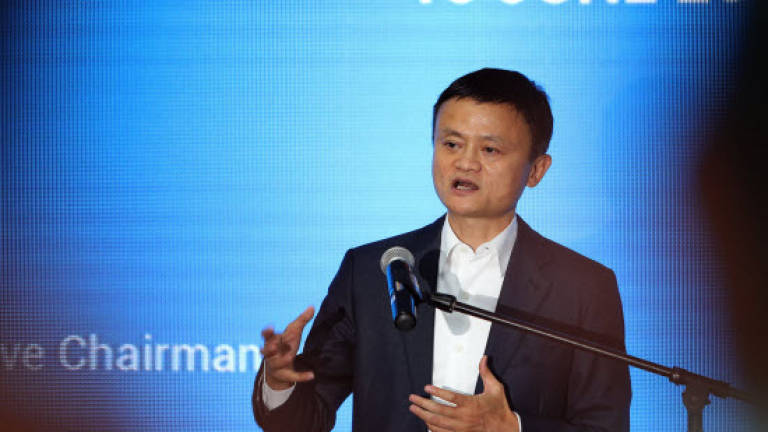Alibaba opens Malaysia national office, its first in Southeast Asia

KUALA LUMPUR: Things have come full circle for Alibaba Group founder and executive chairman Jack Ma, who once drew inspiration for his business from Malaysia's Multimedia Super Corridor (MSC), after the launch of the Chinese e-commerce giant's national office in Bangsar South here, its first in Southeast Asia, Monday.
The Chinese magnate said that news he read back in the 1990s on the MSC, which was Prime Minister Tun Dr Mahathir Mohamad's brainchild, served as an inspiration for him to start what has gone on to be one of the world's largest e-commerce companies.
"Malaysia inspired me (for) Alibaba. This morning I thanked PM for his great inspiration for MSC," said Ma in reference to his meeting with Mahathir earlier Monday.
Reminiscing about his 20-year-old dream, Ma said Malaysia was a suitable location for Alibaba's first overseas electronic world trade platform (eWTP) hub – which forms part of the Digital Free Trade Zone (DFTZ) and went live in November 2017 – and shape it as a "real MSC", empowering local small and medium enterprises (SMEs) and talent.
In 1996, Mahathir mooted MSC, Malaysia's initiative for information and communication technology – a special economic zone and high technology business district that included the development of smart cities and provided special incentives for companies investing in high technology.
Ma also hailed the 92-year-old premier's technological knowledge and visions and said the Malaysian government and Alibaba are looking at ways of using technology to develop the rural segment by creating jobs and increasing productivity.
On top of that, Ma noted that the office will serve as a training centre to harness local talent in addition to empowering local SMEs.
Ma expressed his confidence in the new government's open policy towards foreign direct investment and backed its move of reviewing the feasibility of mega projects.
The sheer size of China's population, which is expected to import a whopping US$8 trillion (RM32 trillion) over the next five years, is a huge market to tap into.
"We think when trade stops, war starts. We should never use trade as a weapon against other, we should use trade as the method to communicate and exchange culture, respect ... we think Malaysia and China should exchange trade as much as possible," Ma said at the event which was also attended by Finance Minister Lim Guan Eng.
Echoing Ma's sentiments, China's ambassador to Malaysia Bai Tian said investment from China continues to pour into Malaysia, with three Chinese medical companies investing a total of RM1.2 billion in Malaysia a week after the Pakatan Harapan government came into power, and China Construction Bank deciding to purchase RM200 million worth of bonds from the local market, among others.
In reply to a question on the East Coast Rail Link, Bai said: "Confidence is still strong despite the review of the project. These examples show confidence in the Malaysian economy and the support for the new government. We want to do more here, we want to prosper."
Trade between both countries rose by 14.7% in the first five months of this year to US$42.7 billion. In May alone, the trade volume between the two countries stood at US$9.5 billion. Last year, Malaysia and China registered a total trade of US$96 billion.
Meanwhile, the government is looking to roll out uCustoms, which has already been implemented in Port Klang, to other ports in Malaysia in 2019. The uCustoms system will work hand-in-hand with the DFTZ to streamline Customs processes.